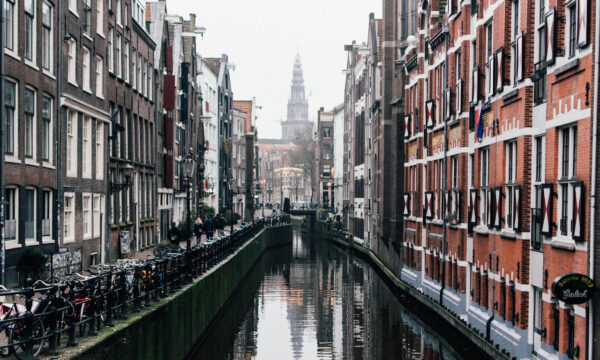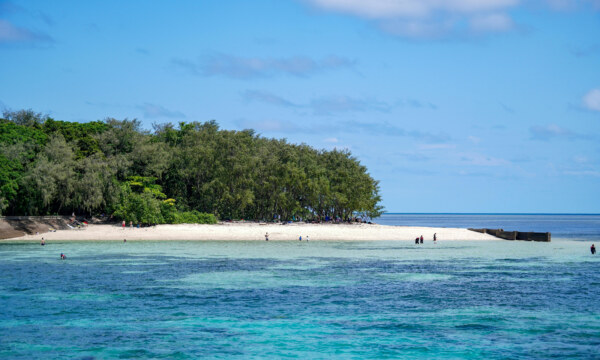Sustainable travel in 2025: Exploring the world with a conscience

As the world continues to bounce back from years of uncertainty, travel has taken on new meaning. Beyond bucket lists and Instagrammable moments, there’s a rising demand for ethical and sustainable tourism. In 2025, travellers are increasingly mindful of their environmental footprint, cultural impact, and the long-term effects of tourism on local communities. People are seeking more than relaxation, they’re looking for experiences that are enriching, respectful, and responsible. From eco-lodges and carbon-neutral flights to immersive cultural stays, sustainable travel is no longer a niche, it’s the future.
How to travel smart and sustainably
Embracing sustainable travel doesn’t mean sacrificing comfort or adventure, it means making smarter choices. Opting for eco-friendly accommodations, supporting local businesses, and choosing direct flights to reduce carbon emissions are just a few of the ways modern travellers are making a difference. Another trend gaining popularity is digital travel tools that offer value and convenience, like travel budgeting apps or bonus platforms. For example, savvy travellers can get free casino promo codes for existing customers and enjoy fun digital downtime without spending extra, making every travel moment count.
Eco-friendly destinations on the rise
Countries across the globe are taking sustainability seriously and attracting eco-conscious travellers with unique initiatives. Costa Rica remains a leader in eco-tourism, boasting lush rainforests, wildlife sanctuaries, and lodges powered by renewable energy. In Europe, Slovenia has quietly become a green tourism hotspot, thanks to its sustainable infrastructure, extensive cycling paths, and locally driven hospitality. Closer to home, Scotland is pushing for net-zero tourism, encouraging visitors to offset their carbon footprint and explore lesser-known regions. These destinations prove that exploring the world without exploiting it is indeed possible.
Supporting local economies through slow travel
The “slow travel” movement, favouring depth over speed, has gained popularity as travellers look to forge deeper connections with places and people. Instead of rushing through multiple cities, slow travel encourages staying longer in one destination, using public transport, and shopping or dining locally. This approach not only reduces emissions but also ensures tourism dollars benefit small businesses and artisans. In Italy’s lesser-known regions like Basilicata or Le Marche, for example, travellers can stay in agriturismos (farm stays), eat farm-to-table meals, and immerse themselves in traditional crafts, offering a far richer experience than a whirlwind tour.
The rise of regenerative tourism
While sustainable tourism focuses on minimising harm, regenerative tourism takes it a step further: leaving a destination better than it was found.
This could mean participating in beach clean-ups, tree planting, or volunteering with community initiatives. It’s a growing trend among young, socially aware travellers who want their holiday to have a lasting, positive impact. Projects like Earthwatch’s citizen science trips or REI Adventures’ eco-expeditions blend exploration with activism, allowing participants to contribute to environmental conservation and community upliftment as part of their travel itinerary.
Technology as a force for good
Advancements in travel technology are making sustainable choices more accessible. Apps like HappyCow help travellers find vegan restaurants around the globe, while platforms like Fairbnb redirect booking fees to local community projects. Airlines now display carbon emissions alongside flight options, and some even offer the ability to contribute to carbon offset programs directly at checkout. With real-time language translation apps and digital wallets, travellers can navigate unfamiliar territories with confidence, making it easier than ever to support smaller, independent businesses instead of large chains.
Cultural respect and ethical travel
One of the pillars of sustainable travel is cultural sensitivity. That means respecting local customs, dressing appropriately, learning a few words of the local language, and engaging with communities in a non-exploitative way. It also involves choosing ethically run tours and avoiding attractions that harm animals or commodify cultures. Visiting Indigenous-owned businesses or museums curated by local historians can offer authentic perspectives while ensuring money supports the right hands. Ethical travel isn’t just about the environment; it’s about respect, equity, and empathy.
Eco-luxury: Sustainable doesn’t mean spartan
Gone are the days when sustainable travel meant roughing it. In 2025, luxury and eco-consciousness are no longer mutually exclusive. From solar-powered safari lodges in Kenya to boutique hotels built with reclaimed materials in Iceland, high-end travellers can now enjoy all the comforts they desire while maintaining their values. Wellness travel has also embraced sustainability, with yoga retreats, spas, and wellness resorts offering organic cuisine, biodegradable amenities, and natural energy sources, all without compromising on comfort or style.
Final thoughts
Sustainable travel isn’t just a trend, it’s a movement that reflects our evolving understanding of our responsibility as global citizens. As climate change, over-tourism, and cultural homogenisation threaten some of the world’s most beloved destinations, travellers are beginning to ask not just where they should go, but how they should go. By embracing sustainable and regenerative practices, we can protect the planet, preserve cultural heritage, and foster deeper human connections, ensuring that travel remains a joyful, meaningful pursuit for generations to come.
The editorial unit

























Facebook
Twitter
Instagram
YouTube
RSS